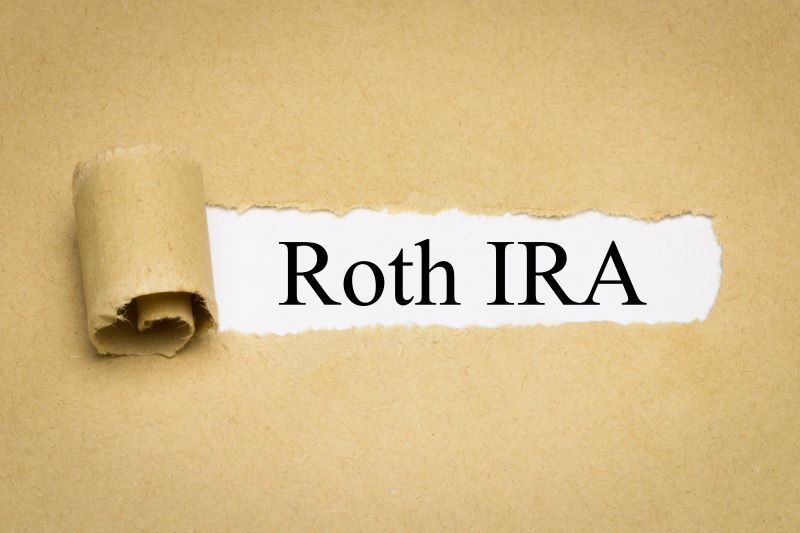When you first got started with your retirement planning, you may have asked yourself (and maybe even a financial advisor), “Is a Roth or Traditional retirement account right for me?” But once you got established, did you ever ask yourself the question again?
Since Traditional IRAs and Roth IRAs are similar but have critically distinct tax treatment, it’s wise to review your retirement decisions and assess if what worked for you at one time in your life is still appropriate.
Going one step further, converting the money in your Traditional IRA to a Roth IRA can cause a massive shift in the tax treatment of your assets, greatly affecting your financial future.
High net worth individuals may stop here, assuming they’re not eligible for a Roth retirement account, since there are income restrictions associated with them. But those restrictions can be bypassed with a Roth conversion.
There’s a lot of confusion around a Roth conversion. As a financial advisor in Utah, the following information will help you evaluate if a Roth conversion is right for you.
A Brief Review of Retirement Account Basics
To begin, it’s important to remember the differences between a Traditional IRA and a Roth IRA. Once you have earned income, you are eligible for both retirement account types.
These two account types are considered non-taxable as they pertain to investments. In other words, receiving interest, dividends and selling profitable investments held within your retirement accounts are not taxable transactions.
You are only responsible for taxes when you physically take money out of a retirement account without rolling it over into a retirement account of the same type, as retirement account withdrawals are considered taxable income. Lastly, if you take money out of any retirement account before age 59-½, the transaction may increase your taxable income. This applies to 401(k) and employer-sponsored retirement accounts, too. (Read our recent blog post: What an Early Withdrawal from Your Retirement Fund Really Means.)
Traditional IRAs Offer Valuable Income Deductions
The biggest difference between Traditional and Roth IRAs plays out on your taxable income for the year. With Traditional IRAs, any money contributed into the account can be deducted from your taxable income for the year. The limit is $6,000 until you reach age 50, or $7,000 if you’re 50 or over.
Traditional IRAs are often called pre-tax, because depositing money into the account earns you the right to deduct the amount from your income, so the taxes on that income haven’t been paid.
Required Minimum Distributions (RMDs)
After years (or even decades) of income deductions from a Traditional IRA, some form of taxes needs to eventually be paid. This is where another critical difference between Traditional and Roth IRAs comes into play. At age 72, Traditional IRA account owners are required to withdraw money every year, a taxable event.
Your Tax Bracket May Be Lower in Retirement
The good news is, retirees are often in a lower tax bracket than they were during their working years, in which case, the taxes paid on retirement account withdrawals in retirement are lower than when fully employed. For this reason, Traditional IRAs are tax-advantaged.
Roth IRAs, on the other hand, can be potentially tax-free.
Roth IRA Contributions Cannot Be Deducted
Roth IRAs offer no income deductibility. These accounts are considered after-tax, since the taxes were paid at the time of contribution. For this reason, Roth IRAs have no RMDs, and if a certain criteria is met, withdrawals may even be tax-free.
The 5-year Rule and Age Criteria for Tax Free Withdrawals
The calendar year in which you make your first contribution starts the clock on a Roth IRA’s five-year holding period. Once five years have passed since your first contribution, one of the requirements has been fulfilled for a withdrawal to be tax-free. The next (and final) criteria is that you’re over the age of 59-½.
Once these two requirements are met, money can be withdrawn from a Roth IRA tax-free. This arrangement makes Roth accounts extremely appealing for many investors.
But is it the right move?
Is a Roth conversion right for you? Schedule a no-strings-attached conversation with the Rock House Financial team.
When a Roth Conversion May be Helpful
Now that you understand the major differences between Traditional and Roth IRAs, you can better understand the merits of completing a Roth IRA conversion. A Roth conversion means to move money from a Traditional IRA into a Roth IRA, and incurring the tax expenses in that current tax year.
This transaction can have serious tax consequences, so it’s very important to make these key considerations and speak with a financial advisor before making a Roth conversion.
Your Income is Too High to Own a Roth
Your income level determines whether you’re eligible to contribute to a Roth account. If you are unmarried and file your taxes as a single person, you can only make a partial contribution to a Roth IRA. If your income surpasses $208,000 in a given year, you cannot make contributions.
If your annual earnings are too high, there is a useful alternative called the backdoor Roth IRA that still complies with IRS rules. Instead of contributing directly to a Roth, you transfer the funds directly from a Traditional IRA to a Roth IRA.
You Believe You’ll Be in a High Tax Bracket in Retirement
If you believe that you will be in a high tax bracket during retirement, converting your pre-tax retirement savings can get your taxes out of the way before you retire.
Luckily, the state of Utah has no inheritance or estate tax, making an inheritance windfall less likely to send you into a higher tax bracket. But if you have other reasons to believe your tax bracket will still be high in retirement, discuss a conversion with a financial advisor in Utah sooner rather than later.
You Want Your Beneficiaries to Avoid Required Distributions
If you are a Traditional IRA owner, completing a Roth conversion can eliminate RMDs. Your heirs will appreciate this as well – instead of inheriting a retirement account where they need to complete a required (and possibly taxable) withdrawal every year, they can enjoy a Roth IRA with a higher balance and no RMD requirement.
When a Roth Conversion Isn’t a Good Idea
A Roth conversion cannot be undone. Talk to a financial advisor (Utah) before deciding on a Roth conversion.
You Can’t Afford the Taxes
Even if a Roth conversion can benefit you financially in the long-term, it may still be a bad idea if the tax bill for the year of conversion is too high. What’s more, if your only source of savings to pay for the taxes from a Roth conversion comes from your Traditional IRA, this can add to your tax bill, since more funds need to be withdrawn.
You’re Near Retirement and Need the Funds
If you have only a handful of years until you begin your retirement, it’s important to shore up all of your financial resources to assess your retirement expense coverage. Every dollar of savings or income generating investments are crucial to maintaining a comfortable retirement.
Therefore, paying the taxes after completing a Roth conversion may burn valuable cash reserves you’ll need after you retire.
You are Planning to Give to Charity from Your Traditional IRA
Fortunately, charitable giving offers mutual benefits within your Traditional IRA. If you transfer money from your retirement account directly to a qualified charity, the withdrawal from your retirement account is considered a Qualified Charitable Distribution (QCD) and is not taxable. This also applies to RMDs! If you complete a Roth conversion, however, you’ll lose the tax benefit from completing a QCD.
For more on QCDs, read our recent blog post: Donating to Charity? Rock House Financial Shares 6 Ways to Do So.
Why You Should Talk to a Financial Advisor First
Keeping track of the short-term and long-term implications of completing a conversion can be overwhelming.
At Rock House Financial, our team of financial advisors in Utah are intimately familiar with Roth conversions and can help clients navigate the intricacies of their individual financial situations. Remove the guesswork from your financial planning and make your retirement dreams a reality. Get the conversation started.












